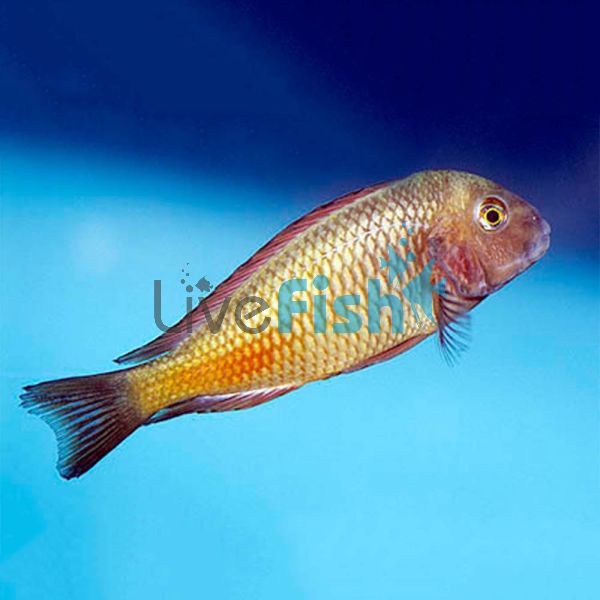Tropheus Moliro Red 3cm
Tropheus are a large family of African cichlids which are extremely popular with aquarists who specialize in keeping African fish species. Generally, tropheus are regarded for their popping yellow colours however the Tropheus Moliro is unique in the sense that it is red. Along with this the tropheus moliro also has hues of orange, yellow, purples, and contrast colours of blue on their lips and cheek plate.
- Buy 4 for $28.00 each and save 10%
- Buy 6 for $24.89 each and save 20%
Tropheus Moliro
Tropheus are a large family of African cichlids which are extremely popular with aquarists who specialise in keeping African fish species. Generally, tropheus are regarded for their popping yellow colours however the Tropheus Moliro is unique in the sense that it is red. Along with this the tropheus moliro also has hues of orange, yellow, purples and contrast colours of blue on their lips and cheek plate.
The Moliro is a great and rarer alternative to the commonly available trophies Duboisi which can have a dark blue colour that may not appeal to everyone. The tropheus moliro will get to around 15 cm (6 inches) making it a fairly sizeable African cichlid, but a very striking one as well. Unlike African peacocks which are known to be semi-aggressive fish, the tropheus are regarded to be more aggressive which is why they are generally kept in species only tanks.
Tropheus Moliro can be fairly difficult to distinguish the gender however there are a few slight features that can be looked at. Males tend to have a turned-up nose while females tend to have a greater slope and rounded nose. Males will also grow at a faster rate and display their adult colours sooner. Adult males will also tend to have a deeper body, whereas females appear slimmer and streamline.
Tank Recommendations for your Tropheus Moliro
The tropheus moliro is a very active fish that needs a tank that is at least 125 gallons (470 liters) and around 4 feet minimum width. A sand substrate is best as they do routinely sift through the sand to find food. Because Tropheus Kaiser can be a little bit more aggressive when compared to other African cichlids so it really recommended having lots of caves, hiding places and visual breaks so fish can set up their own territories. Generally, Tanganyikan cichlid aquariums are scaped with large pieces of Texas holy rocks or artificial rock caves, however, a great alternative to this is using seriyu or similar-looking rock which can create a more natural environment and still provide the same PH increasing benefits.
Suitable Tank Buddies
Tropheus in general is recommended to be kept in a species only tank and maintaining a ‘harem’. This means that there is one male Tropheus with multiple females, as the minimum tank size for these fish is 120cm x 60cm x 60cm, it’s recommended to keep one-two males with six-seven females as this ensures that aggression is evenly diffused. However, they can be kept in a mixed African cichlids tank with larger growing Africans.
Usually Compatible
Other tropheus Moliro and larger growing African cichlids such as frontosa, fuscodichromis and other haplochromide species.
Sometimes Compatible
Large adult peacock cichlids
Rarely Compatible
South American cichlids such as Oscars and Jaguar Cichlids, smaller African cichlids such as Mbunas and tetra species.
Feeding your Tropheus Moliro
Tropheus in general are very easy fish to feed, they easily take to pellets, flakes and a vast range of prepared aquarium foods, however. their diet should contain good quality African cichlid pellets with high contents of spirulina or greens. Algae can also be promoted to grow in the aquarium as a natural food source for the fish as tropheus will readily graze on this. Feeding should occur once a day and it is best to do so during the day.
| Scientific Name | Tropheus Sp Red |
|---|---|
| Care Level | Moderate |
| Common Names | Tropheus Moliro, Tropheus Sp. Red, Red Tropheus, |
| Diet | Omnivore |
| Fish Family | Cichlidae |
| Lifespan (years) | 15 |
| Max. Length (cm) | 15 |
| Min. Tank Volume (l) | 470 Litres |
| Origin | Africa |
| Sociability | Aggressive |
| Water Conditions | 24-26° C, pH 8.0-8.5 |




